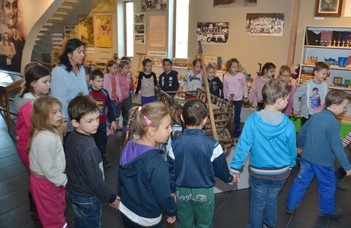Cultural (Play) Spaces for Mental Health

Identification of Social Problem
In recent years, the role of small communities in cultural transmission has decreased, the dialogue between generations has diminished, and cultural markets regulated by mass media target children and families. In response to this, a multidisciplinary research group consisting of university professors, museologists, and museum educators has developed experiential-centered museum activities for new museum (play) spaces. The new museum methodology created by them, along with its implementation, reflects social needs (strengthening local and regional connections, creating enjoyable lifelong learning forms, facilitating intergenerational dialogue), and thus can be regarded as a social innovation.
Expected Social/Economic/Environmental Benefits of the Research
The mental health and well-being of teachers and teacher trainees are a matter of public concern because the mental health of children, as well as their attitude towards educational institutions such as schools, kindergartens, and universities, and consequently their approach to learning, may depend on it (Kolosai and Bognár, 2009). Studies reviewing the literature on positive pedagogy indicate that there has been relatively little evidence-based research on this topic so far. The experience of discrete positive emotions examined in the research predicts people's general well-being or happiness. Research confirms the connections between positive emotions and mental and physical health in interconnected areas such as work, school, and human relationships (Cohn and Fredrickson, 2012). The frequency of experiencing positive emotions is also associated with longer life expectancy (Cohn and Fredrickson, 2012). Due to all these factors, facilitating the experience of positive emotions is an important pedagogical task in institutional education and upbringing. The scientific research of the role of positive emotions, based on data and facts, serves both individual and social goals in the field of education.
Contact
Nedda Kolosai (Eötvös Loránd University Faculty of Primary and Pre-School Education)
E-mail
More about the 2021–2022 phase of the research
